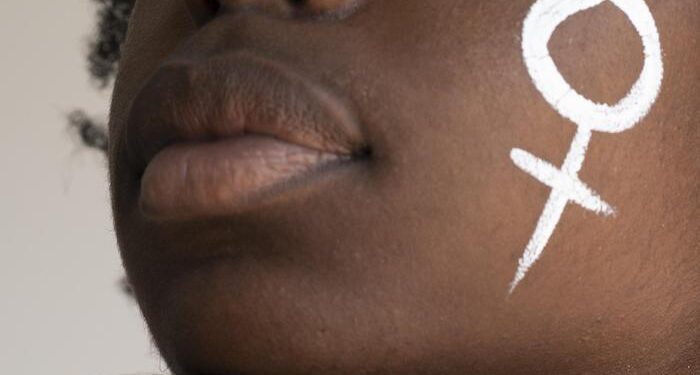This 16 Days, Quote This Woman+, an African feminist non-profit working for a gender-just media, calls on all thought-leaders and writers to exercise responsibility for the words, phrases and acronyms they choose in this conversation.
We refer in particular to the easy euphemisms and acronyms that dominate discourse which often replace, rather than refer back to, the full gamut of violences perpetrated.
‘GBV’, meaning gender-based violence, ‘VAWG’, meaning violence against women and girls, and IPV, intimate partner violence, are used as full identifiers, rather than abbreviations, in text, headlines, and captions. They’re the accepted names of working groups, policies, and action plans.
Why this concerns
Linguistics tells us that the more effort we put into thinking about things, the more careful and clear the language we use when we describe those things. Similarly, the clearer and more careful our thinking, the more precise our language.
And the inverse is true too: as language degrades – in this case, by defaulting to acronyms and euphemisms – so does critical thinking.
It is easy to understand why we unthinkingly default to euphemisms, especially in a trauma-filled world. Whether we lead the conversation, or are the audiences, we find it deeply uncomfortable to look squarely at that which rightly is taboo in our society, like acts of gendered violence.
We unconsciously seek for the words that diminish those feelings of discomfort, that “dance with light feet around difficult truths”. Acronyms become the euphemisms that dilute the severity of the acts they describe. And if 16 Days of Activism are intended to propel change, there needs to be complete clarity about what it is that needs to change, what it is that needs to be exposed, dishonoured, and altered.
By that we mean the perpetrators of rape, femicide, incest, beatings, trolling, doxing, and intimidation and the culpable institutions of the state, the economy, education, society and culture that – consciously or unconsciously – enable violent behaviour.
Who benefits when language and thinking degrades
Quote This Woman+ believes that the language we currently use reflects and reinforces the agenda of those who both overtly and covertly resist this change, on an individual and an institutional level.
The focus on those who suffer is crucially important. But it conveniently deflects our gaze from those who perpetrate. It reinforces the myth that what is up for debate is the behaviour of women, rather than of systems, and men. Our language is degrading how we and our audiences understand the dissonance of power, and consequently, our ability to change it.
Name it to tame it
To clarify thinking about this matter, Quote This Woman+ spoke to two trauma psychologists. They explained that when violences are named, we’re triggered at gut-level. At best we feel unease, and at worst horror, terror, anger, or shame. Very often, this is followed by avoidance, as we try to bury negative feelings. This is why trauma isolates. It keeps its secrets; hides its shame.
But these psychologists agree that when we name what we hold as unthinkable, a space appears for something transformative to take place. We stop being fully inside the experience, and become its external observer. That which was overwhelming and amorphous becomes specific and manageable. Our nervous systems regulate, there is a space in which to heal.
Quote This Woman+ believes that with careful thought, everyone in this conversation can find the ability to use language that shines the light into the shadows while still evidencing compassion. And without sanitising acts of violence, and without degrading how we think.
Be the change
This open letter is a call to every person whose language touches on gender violence, to do the following:
-
Think before defaulting to acronyms
Ask: whose interests am I serving when I box the full extent of this violence into a few initials?
-
Be conscious as a gatekeeper
When narratives focus overwhelmingly on those who have suffered, there is no space to expose, dishonour and hold to account those who perpetrate, and those who enable.
-
Use curiosity and compassion to get clarity
Be curious when you notice your own instincts to bleach difficult truths. Allow self compassion: acknowledge how hard this is. Remember that it is a fallacy to think that euphemisms protect ourselves or others from harm, and allow this resolve to guide language clarity.
-
Centre the systems at fault
Interrogate that which allows violence to thrive, be they churches, schools, police stations, hospitals, community leaders/structures, parties in power, or the style guides of international NGOs, universities, and media houses. These structures belong at the centre of the story, not the margins, because violence is not random, it is produced by the system that needs changing.
-
Platform complexity and context
Violence happens in rural villages, in townships, in city flats, in refugee settlements. In each of those places, different causes and effects are at play. Avoid flattening these realities. Resist the narrative that gender violence is a single national tragedy, when it is specific acts, in specific places, shaped by specific failures.
-
Edit with intention
In an attention-scarce world, victim-shaming and voyeurism become easy frames. Cutting for impact is a shortcut for erasing accountability. Editing is an ethical act, and an act of courage. If the truth makes you uncomfortable, ask whether the discomfort comes from the language, or the underlying reality.
If we want a different world, we must start by refusing the soft language that keeps this one intact. So, this 16 Days, we ask you to choose words that honour truth.
Name the violence.
Name the systems that uphold it.
Centre the problem itself.
We know that language alone cannot end the violences of patriarchy and gendered power. But the words we choose shape what society is willing to see, and what we demand by way of change.
Kath Magrobi is executive director, Quote This Woman+














